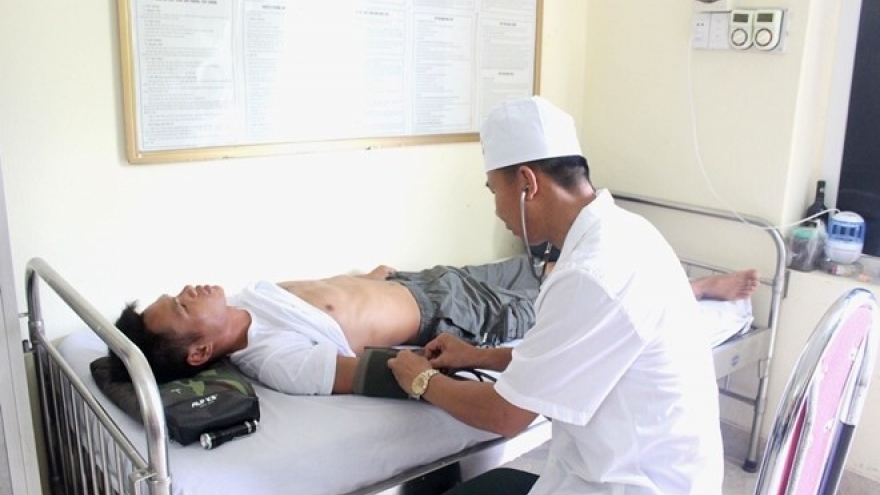Vietnamese, Chinese parties hold 15th theoretical workshop
The 15th theoretical workshop between the Communist Party of Vietnam (CPV) and the Communist Party of China (CPC) was opened in Guiyang city, the Chinese province of Guizhou, on July 21.
 |
| Politburo member, Secretary of the CPV Central Committee and head of the CPV Central Committee’s Information and Education Commission Vo Van Thuong (L) and Politburo member, Secretary of the CPC Central Committee’s Secretariat and head of the CPC Central Committee’s Publicity Department Huang Kunming at the theoretical workshop opened in Guiyang on July 21 (Photo: VNA) |
The two-day event focuses on some regularities during the modernisation of socialism. At its sessions, participants will discuss theoretical and practical issues in the building and modernisation of socialism in each country.
Earlier, head of the CPV Central Committee’s Information and Education Commission Vo Van Thuong had a meeting with Zhao Leji, member of the CPC Politburo’s Standing Committee and Secretary of the CPC Central Committee’s Discipline Inspection Commission; and held talks with Huang Kunming.
The officials informed each other about the situation of their respective parties and countries and exchanged views on relations between the two parties and countries in the recent past.
 |
| Head of the CPV Central Committee’s Information and Education Commission Vo Van Thuong (L) meets with Zhao Leji, member of the CPC Politburo’s Standing Committee and Secretary of the CPC Central Committee’s Discipline Inspection Commission (Photo: VNA) |
Regarding sea-related issues, Thuong asked both sides to realise well the common perceptions reached by the two parties and countries’ leaders, including the Vietnam-China agreement on basic principles guiding the settlement of sea-related issues, and resolve disagreements by peaceful means and in line with international law, including the 1982 United Nations Convention on the Law of the Sea.
He requested China to respect Vietnam’s rights and legitimate interests at sea in conformity with international law so as not to negatively affect the development of the countries’ relations.



